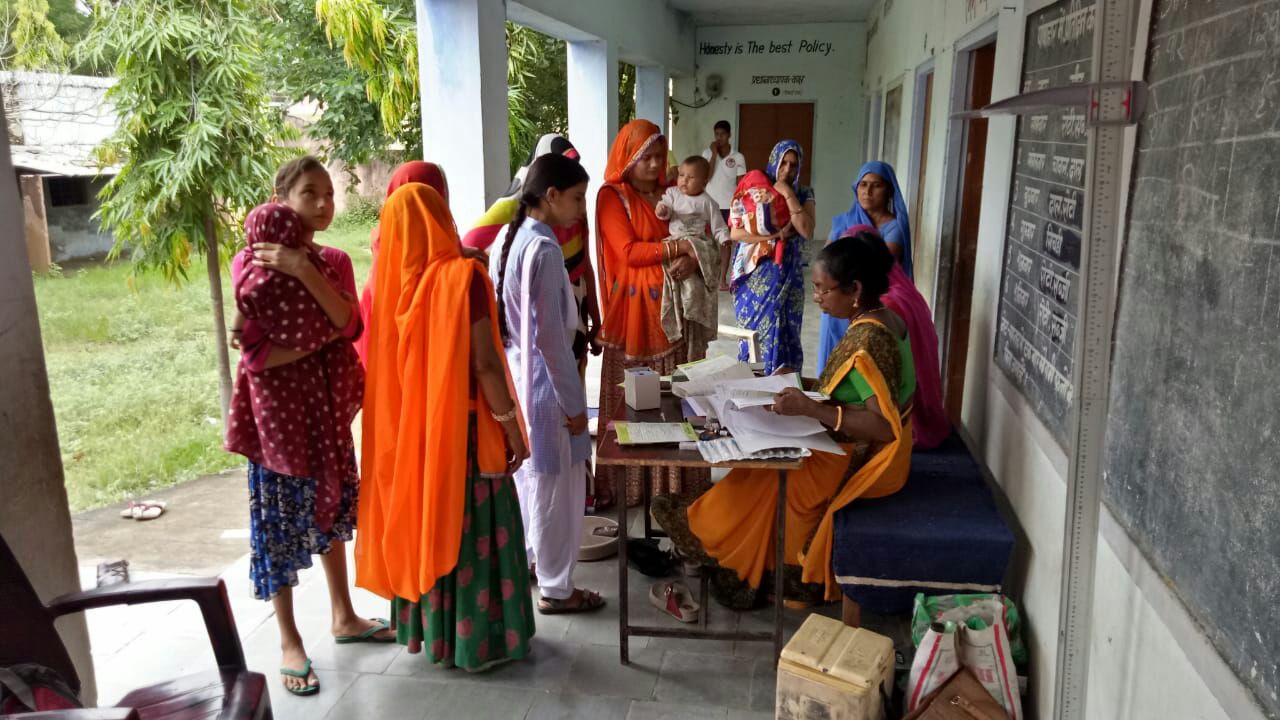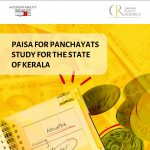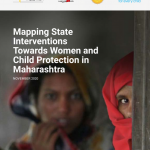
Accountability Initiative in 2018
17 January 2019
The year 2018 witnessed several milestones for us. Among them was the 10th year of Accountability Initiative and a change of leadership from Yamini Aiyar to Avani Kapur. Through our research, we continued to deepen understanding of key sectors, engaged the public and built the understanding of existing and future administrators. At AI, we see 2019 as a year of renewed vigour on working for accountability and good governance.
January
10 years of Budget Briefs
2018 marked the 10th anniversary of our flagship Budget Brief series which analyse the Union Budget and its monetary impact on India’s welfare programmes. In this year’s volume we looked at the allocations, expenditures and progress of 9 key social sector schemes including the Sarva Shiksha Abhiyan (SSA), National Health Mission (NHM), Swachh Bharat Mission (SBM) and the Pradhan Mantri Awaas Yojana- Gramin (PMAY). A special website was created to mark the occasion. Download all the volumes of the series which has become an invaluable source of insight for development practitioners from here. Opinion pieces published can be found here.
Contribution to the the Economic Survey of India
AI was invited by the Chief Economic Advisor to contribute a section on gaps in panchayat finances as part of the chapter titled “Reconciling Fiscal Federalism and Accountability: Is There a Low Equilibrium Trap” in the Economic Survey of India. The chapter can be downloaded from here.
February
Studying the public health system in Uttar Pradesh
Since January 2018, AI has been working closely with the National Health Mission (NHM) Mission Director and the Technical Support Unit (TSU), Government of Uttar Pradesh to understand the reasons for low utilisation of funds and diagnose bottlenecks in implementation of health interventions. Findings from the research have regularly been shared with the Mission Director and the TSU to determine key action areas. After an analysis of mission expenditure over two years, as well as interviews with key government officials across levels, recommendations were offered for improving expenditure performance in UP, several of which were accepted and adopted.
Training efforts
Two staffers were selected as part of the first cohort of Tech4Good Fellows, and Avani Kapur, Director, AI, conducted an In-Service Training on Public Expenditure and Accountability for the AIS (IAS, IPS, and IFS officers).
March
Developing insight on Delhi’s education system
Preliminary findings from ongoing research on Delhi’s education reform interventions were presented at the Annual Comparative and International Education Society Conference in Mexico. The Conference saw participation from education researchers from over 100 countries.
April
Marking Civil Services Day
A panel discussion on “Training India’s Civil Services” was livestreamed on the occasion of Civil Services Day. The discussion was on the realities of bureaucratic life and why there is a need to look at challenges that the country’s civil services face, including training needs. The panel included retired IAS Officer, Ms. Rashmi Shukla, Mr. Vaibhav Pandey, Programme Director at Kaivalya Education Foundation, and Ms. Vincy Davis, Senior Research Associate at AI. The discussion was moderated by Ms. Rajika Seth, Learning & Development Officer, AI. The discussion, which has been viewed by over 600 people, can be accessed here.
Capacity Building of ICAS officers
Avani Kapur, Director, AI and Rajika Seth, Learning & Development Officer, AI conducted a session on Public Expenditure Accountability and Social Audits as part of the probationer training for ICAS (Indian Civil Accounts Service) organised by NIPFP.
May
AI’s specialised learning opportunities
The course Hum Sarkaari Adhikaari was conducted with 50 Panchayat Secretaries and other frontline functionaries from Dharamshala Block in Himachal Pradesh. The course takes AI’s research learnings on decentralised governance to local governments, fills knowledge gaps and facilitates a reflection on the current reality of local governments and the causes for dysfunctionality in government functioning. Hear what one of the participants had to say.
In addition, guest lectures were given on improving public finance management for the health sector as part of the ‘Indian Flagship Course on Health System Strengthening and Sustainable Financing to Senior Health Officials in India’. The course was organised by Harvard School of Public Health and LBS Academy.
June
Engaging the next generation of development practitioners
Two guest lectures conducted with the current batch of Vedica Scholars, reaching out to a class of 60 young women on Evidence Based Decision Making and Communicating Research.
Launch of a new discussion series
The first Policy In-Depth session was held this month to provide a platform for development sector practitioners and the public to engage on the implementation of key welfare programmes in India using research-backed evidence. The first session unpacked the issue of delayed payment of wages to beneficiaries in the government’s largest rural livelihood programme – the Mahatma Gandhi National Rural Employment Guarantee Scheme (MGNREGS).
July
Studying nutrition services in 6 states
The month saw intense preparations for the first phase of a process tracking study to track planning, budgeting, fund flows, and governance structures which impact implementation of key nutrition specific interventions (focusing mainly on ICDS but also looking into Vitamin A supplementation, deworming). The aim is to try and determine bottlenecks and better practices across states or even across districts. The study is being undertaken in 2 districts each across Uttar Pradesh, Bihar, Maharashtra, Karnataka, Rajasthan, and Odisha.
August
First phase of the study was launched, and citizen volunteers recruited in 3 districts (2 in Rajasthan, 1 in Maharashtra).
Insights on the Kerala floods
In a blog series, T.R. Raghunandan unpacked the increased vulnerability of Kerala due to colonial policies and present day urban development patterns. Read more here.
September
Analysing India’s efforts to restructure centre-state relations
Avani Kapur, Director, AI and Yamini Aiyar, Founder, AI published a paper titled ‘The centralization vs decentralization tug of war and the emerging narrative of fiscal federalism for social policy in India’ in a special issue of Regional & Federal Studies. The paper examines the relationship between fiscal federalism and social policy in India through an analysis of the effects of a recent effort to increase fiscal decentralisation to state governments on the nature of social policy investment at the sub-national level. The paper can be found here.
Understanding the education policy landscape
The second Policy In-Depth session explored the newly launched Samagra Shiksha Abhiyan (SMSA). Subsuming 3 big budget programmes -the Sarva Shiksha Abhiyan, Rashtriya Madhyamik Shiksha Abhiyan and Teacher Education, its intent is to significantly improve quality of learning from pre-school to class XII. The key speaker for this session was Dr Manisha Priyam, Associate Professor, National Institute of Educational Planning and Administration.
October
Training young minds
The course Understanding State Capabilities was conducted with the current batch (60) of ISDM students. The course highlights the root causes of administrative and fiscal dysfunctionality on the ground, equipping participants to apply a systems approach to on-ground interventions, engage with evolving nature of government functioning and interact with the state from a perspective that responds to the current state of weak capability while simultaneously also bridging this capability gap.
Deepening insight on the education system
200 teachers from 39 government and municipal schools in Delhi were surveyed between December 2017 and April 2018 to unpack their role and work related perceptions, and to map the time spent by them on various school activities. The report will be launched by the DCPCR this year.
Another study attempted to understand how school level data can be used by different stakeholders in India’s public education system as an accountability tool. Findings were presented in an international policy forum, and was published by UNESCO IIEP. The study can be found here. The key findings of the report along with insights from AI’s fund flow tracking research experience are expected to be included in School Management Committee trainings in Madhya Pradesh in the future.
November
The month saw the starting of the second phase of the nutrition survey in 1 district of Maharashtra and 2 districts of Bihar.
Understanding the state of water resources
AI is currently undertaking an appraisal of existing financial mechanisms, especially in the context of three states, namely Maharashtra, Punjab, and Karnataka. A further deepdive into the performance of 4 key Centrally Sponsored Schemes will follow to recommend effective structures for central assistance. As a part of the study, a roundtable conference and workshop were conducted, bringing together key experts in the water sector.
December
Exploring PMJAY
The third Policy In-Depth session unpacked the Pradhan Mantri Jan Arogya Yojana (PMJAY) which has the mandate to deliver health insurance coverage of Rs 5 lakh per family per year to over 10 crore poor and vulnerable Indian families. The key speaker of the session was Dr Jeffrey Hammer, Non-Resident Senior Fellow at NCAER.
New research endeavours
As part of a World Bank project on ‘Benefit Incidence Analysis’ of public spending on health and education India, AI is studying detailed treasury data of two states, classifying it by district, and different components and levels of expenditure within each district. The joint report is likely to be out by early next year.
In addition, research on understanding the implementation and outcomes of the consolidation of government schools taken up by Rajasthan education department is underway. The findings are likely to be published as a working paper soon.
AI is working with the Safai Karmachari Andolan and the SCIFI team at CPR to understand the outcomes and bottlenecks in the implementation of the scheme for rehabilitation of manual scavengers. This study is being conducted in two districts in Punjab with the possibility of replication in other states. Adopting a multipronged approach, the study aims to survey beneficiaries of the scheme and understand their experiences. At the same time, the study will also seek to identify manual scavengers who are presently excluded from the SRMS net and understand the barriers to access.
Findings from a study on the Swachh Bharat Mission- Gramin in Udaipur, Rajasthan have been triangulated with the SQUAT survey 2018, of the research institute in compassionate economics (rice), to release a working paper on SBM processes and outcomes. The findings were shared with the district administration in 2017 to help them address the gaps in ODF GPs and to improve the implementation process in the remaining district. In 2018, findings from this research





